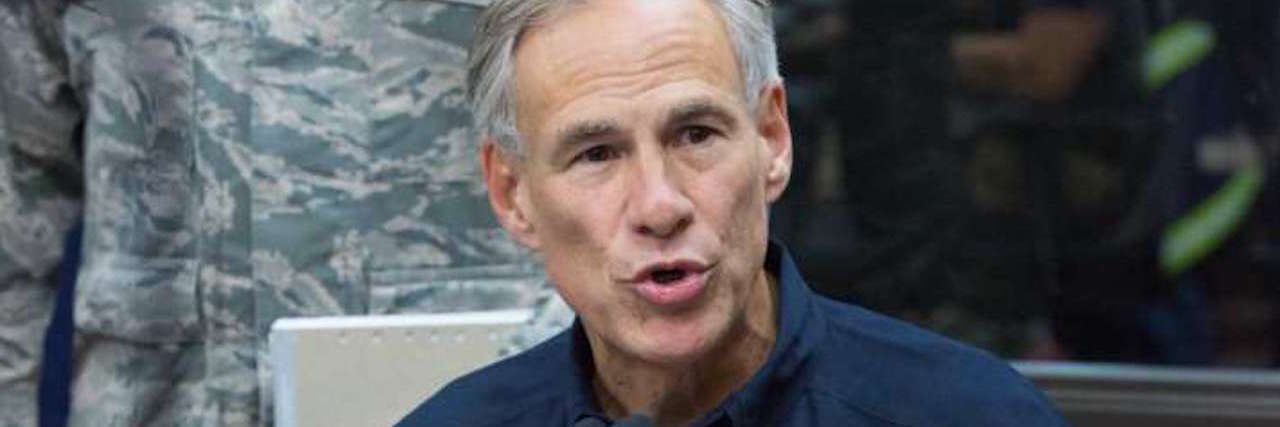Lauren Appelbaum is the communications director of RespectAbility, a nonprofit organization fighting stigmas and advancing opportunities for people with disabilities.
Around Labor Day we celebrate the opportunity to work. Jobs are where we make a difference, have a purpose, gain dignity and friends and achieve financial independence.
RespectAbility is on the front lines fighting stigmas and advancing opportunities for people with disabilities. And we see those opportunities everywhere – even in horrific tragedies such as Hurricane Harvey. That is because we know there are solutions to problems, and we have seen what people can do when they decide to come together to make things better. In Harvey’s path of destruction, we all have witnessed average people turn into superheroes. Neighbors helping neighbors. Strangers becoming friends.
In Texas, there are more than 3 million people with disabilities. Some of them are scrambling for urgent medical care, durable medical equipment and safe housing. Fully 1.5 million working-age people with disabilities live in Texas, and each year more than 25,000 youth with disabilities leave their school system.
Even before the hurricane, only 38 percent of working-age Texans with disabilities had a job. Compare that figure with the 74 percent of those without disabilities who were employed. People with disabilities are the poorest of the poor in Texas: more than 26 percent of people with disabilities in Texas live in poverty, compared to 14 percent for Texas residents without a disability.
An unusual element of Texas, though, is that its governor, Greg Abbott, is a wheelchair user. Like President Roosevelt, who led our nation through an economic tragedy, Gov. Abbott knows the value of harnessing the talents of people with disabilities and abilities alike.
This crisis can be an opportunity for people with disabilities in Texas. Today students of all kinds in the storm’s path are unable to go to school. This is a serious challenge for them. But eventually the doors will reopen. Then what?
Recently news stories about restrictions on special education supports for students with disabilities at the Texas Education Agency (TEA) showcased the disparities that people with disabilities often faced in Texas before the storm. The right type and amount of educational supports for a student is one of the many things that in the vital recovery efforts can be fixed.
Yes, it is essential for people to have food, clothing and a dry and clean place to sleep at night. Handouts are essential at this time and must be supported. But it also is vital to help people with disabilities finish school with a degree and secure and succeed at a job at minimum wage or above.
Studies show that with the right supports such as coaching and mentoring, a majority of people with disabilities can succeed in employment. They should not only be getting handouts in the wake of the storm but also hand-ups. And that means they should be a part of rebuilding their own communities.
Every disaster can be a catalyst for new conversations and partnerships. In Texas this now will include FEMA, the Red Cross, Portlight, the Jewish Federation and Family Services, and others doing disaster relief. New partnerships should also include the workforce system, vocational rehabilitation, nonprofit partners and philanthropy. Stakeholders can be united by a shared vision of a rebuilt and vibrant community that includes employment and independence for Texans with disabilities. Together people can dig out of the muck both literally and figuratively.
The people of Texas do not need to reinvent the wheel. They can follow successful new models of others. For example, Gov. Scott Walker of Wisconsin has increased the number of job sites serving young Wisconsinites with disabilities. By advocating for best practices and empowering stakeholders to work collaboratively with one another, Wisconsin grew from having only three Project SEARCH sites, serving 36 youth with intellectual and developmental disabilities, to soon having 27 sites, serving more than 300 youth with disabilities annually.
Wisconsin officials also involved dozens of private sector employers who recognized that workers with disabilities are loyal and hard working. By working hard to ensure that key state leaders have the right tools, the right data and the right knowledge, people with disabilities in the wake of the storm can pursue a job or business of their own.
There are great leaders in Houston such as the Bush family, Linda Burger of Jewish Family Services of Houston (who also serves on RespectAbility’s board of directors), Easter Seals Greater Houston, Maria Town who previously served as President Obama’s key disability advisor and is now Houston’s key point person on disability, the Autism Society and others – all on the front lines.
Our nation was founded on the principle that anyone who works hard should be able to get ahead in life. People with disabilities deserve to be able to work, just like anyone else.
We pray for the health and safety of the people who were harmed by the storm, and we mourn those who were lost. Let’s come together now to work for a time when they not only can survive but also thrive.
We want to hear your story. Become a Mighty contributor here.

